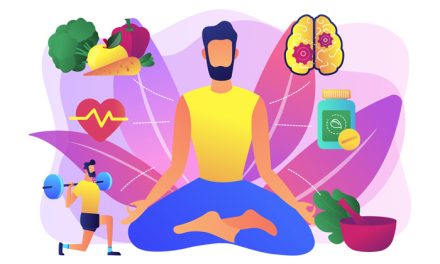The late fall and winter months are notable for many things—many of which are delightful. But these months are also the period during which there is less daylight. The short days of this time of year can present challenges for those in recovery from a substance use disorder. In fact, for some, a lack of sunlight and the resulting mental health challenges can lead to substance use in the first place.
At first blush, this might strike you as unlikely. What in the world could sunlight—or the lack thereof—have to do with mental health and substance use disorders?
Fair question. Let’s take a look at something called seasonal affective disorder.
First, a Clarification
We want to provide one important clarification here: Seasonal affective disorder is often abbreviated and referred to as SAD. In one sense, that is apt. Seasonal affective disorder does often include increased feelings of sadness. But it is essential to note that experiencing SAD and being sad are not the same thing. We all feel sad from time to time—no matter what time of year it is—and that is perfectly natural.
Still and all, it is a good idea to be aware of how you are feeling when the days get shorter. There are some specific symptoms you should be alert to that may indicate you are dealing with seasonal affective disorder.
What is Seasonal Affective Disorder?
Seasonal affective disorder is a mental health disorder that may be related to a reduction in your serotonin levels due to having less exposure to sunlight this time of year. Lack of exposure to sunlight can also lead to a vitamin D deficiency and/or an increase in melatonin levels. The latter can lead to less energy and a strong desire to sleep more than you usually do.
Lack of energy and desire for more sleep are two of the warning signs for seasonal affective disorder. An increase in feelings of anxiety or hopelessness is another. An increased tendency to overeat—including strong cravings for carbohydrates—is also a potential symptom of the disorder.
The Danger of Co-occurring Disorders
Regular readers of this blog know that we often write about the ways in which mental health disorders and substance use disorders can be entangled. Seasonal affective disorder—like other mental health disorders—can certainly contribute to the undermining of your sobriety. The negative feelings associated with the disorder can lead to a desire to “self-medicate” with drugs or alcohol. That desire can lead to the development of a substance use disorder or can put a person in recovery at increased risk of relapse.
Given those facts, it is important to take the symptoms of SAD seriously and to pursue solutions to help you manage the disorder.
Happily, There are Ways to Address SAD
If you are experiencing the symptoms of seasonal affective disorder, we encourage you to talk with your doctor and/or your therapist. Likely treatment options include:
- Committing to getting outside during daylight hours to increase your levels of vitamin D and serotonin
- Regular use of a light box designed to simulate sunlight—either in combination with getting outside or as a replacement for natural light when the weather is cold and dreary
- Getting regular exercise to support your physical and mental health
- Making changes in your diet to focus on getting more vitamin D via foods like fish, pork, hard boiled eggs, mushrooms, and fortified juices, milk, yogurt, and cereals
- Developing coping strategies in therapy and putting those strategies into consistent practice
Taking these steps can help ensure that SAD does not lead to substance use. Equally importantly, addressing this mental health disorder will improve your quality of life during the shortest days of the year.
We are Always Happy to Help
At The Aviary Recovery Center, we provide personalized treatment for substance use disorders and co-occurring mental health disorders. We can help you regain your sobriety via medically supervised detoxification—and then provide you with the tools, strategies, and resources necessary to maintain your sobriety over time.
Our rehabilitation program—grounded in both individual and group therapy—offers treatment for mental health disorders that are intertwined with your substance use disorder. And our commitment to a continuum of care means you can start your recovery journey with confidence knowing that you will have ongoing support from The Aviary.
If a substance use disorder and mental health disorder are upending your life, our team near St. Louis, MO, can help you get back on your feet and moving in a positive direction. When you are ready to get started, we will be happy to get to work.










